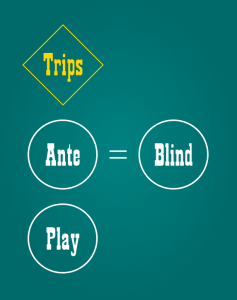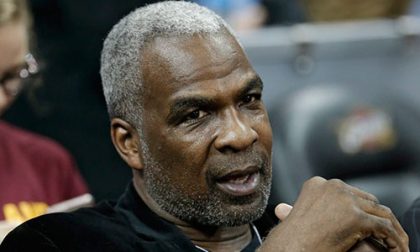Former NBA Star Charles Oakley Avoids Jail Time in Casino Cheating Case
Cheating in gambling is an interesting thing. Anyone with even a semi-functional moral compass knows that cheating is wrong, but by god, if someone can pull one over on the casino, they are a hero. The Phil Ivey edge sorting scandal has been written about ad nauseum on this site and while I don’t consider what he did to technically be cheating (I could be convinced otherwise, though), I would guess that most people think what he did was at least a little bit cool. The casinos are built to take our paychecks, so we often feel that if we can turn the odds in our favor, we deserve to reap the rewards of our efforts. No matter how anyone feels about any of this, if you try to cheat and get caught, you will pay the price, even if you are former NBA All-Star Charles Oakley.
Oakley played in the NBA for two decades and is most known for his ten seasons as part of the New York Knicks’ core. He was a rebounding machine, defensive stalwart, and an overall bruiser who wouldn’t back down from anybody. Oakley made more than $46 million in his career, but that didn’t stop him from trying to cheat his way to an extra couple hundred dollars in the pit at The Cosmopolitan Las Vegas in July.
First reported by TMZ.com after reviewing court documents, Oakley allegedly altered his bets on three hands in a game of Ultimate Texas Hold’em.
The Game

Example of playing field in Ultimate Texas Hold’em
Ultimate Texas Hold’em is a casino table game in the category of Three Card Poker or Blackjack, not to be confused with a regular hold’em cash game that would take place in the poker room. To illustrate what Oakley allegedly did, it helps to understand how the game works. Everyone at the table plays against the dealer; both the player and dealer are dealt two hole cards and, like in standard poker, try to make the best five-card hand when the community cards are dealt.
The player first puts down two equal bets, the ante and the blind. An optional “trips” bet can also be placed which pays out for a three-of-a-kind or better. Pre-flop, the player may choose to check or to bet three or four times the ante. If the player bets, all of the cards are dealt at once and the betting ends. If the players checks, the flop is dealt and the player can then choose to check again or bet twice the ante. After the flop, the turn and river are dealt simultaneously. If the player had bet the flop, there is no more betting. If the player checked twice, he can then choose to fold on the river and lose his ante and blind or bet an amount equal to the ante.
After all decisions are made and all cards are dealt, the player’s hand is compared to the dealer’s hand and proper payouts/losses are made (we won’t go into the details).
The Offense
All the bets a player makes sit out on the table during the hand, each in its own marked circle in front of the player. On one hand, Oakley allegedly took back a $100 chip once he realized he was going to lose the hand. Based on the table layout, this $100 chip almost certainly came from the “Play” circle, which is where a player puts his bet when he thinks he has a good hand. That spot is closes to the player.
On two other hands, Oakley allegedly covertly added chips to his bet (again, likely the “Play” wager), boosting his winnings by $125 for the two hands combined.
This sort of cheating, changing a wager after the outcome is known, is a Class B felony. Oakley was arrested by Nevada Gaming Control Board Enforcement Agents not long after the incident, facing possible jail time of one to six years and up to a $10,000 fine.
This week, Oakley pleaded no contest to a lesser charge of misdemeanor disorderly conduct and will not have to spend time in jail. Considering the small sum of money involved (a couple hundred bucks is a lot to most of us, but in the grand scheme of things, particularly at a Las Vegas casino, it’s nothing), it makes sense; a jail sentence of a year or more doesn’t really seem appropriate for the offense.
David Chesnoff and Richard Schonfeld, Oakley’s attorneys, said that the plea deal “fully resolves this situation” and that “He appreciates the professionalism of the (Clark County) district attorney and the Cosmopolitan in resolving this event.”
Charles Oakley is the head coach of the Killer 3’s of the Big3 basketball league, currently in its second season.
Lead photo credit: Charles Oakley’s Instagram “therealoak34“



















COMMENTS